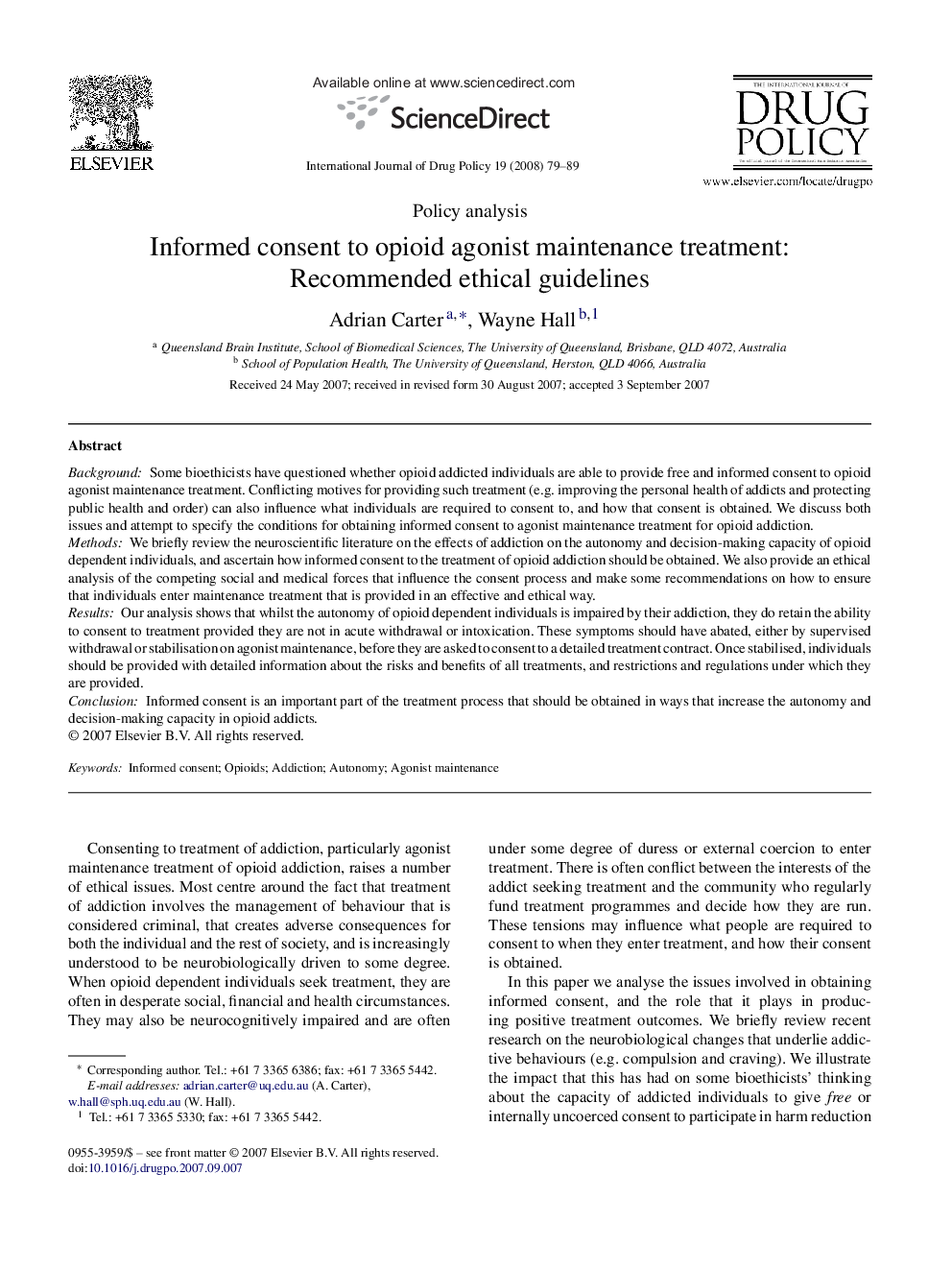| Article ID | Journal | Published Year | Pages | File Type |
|---|---|---|---|---|
| 1075835 | International Journal of Drug Policy | 2008 | 11 Pages |
BackgroundSome bioethicists have questioned whether opioid addicted individuals are able to provide free and informed consent to opioid agonist maintenance treatment. Conflicting motives for providing such treatment (e.g. improving the personal health of addicts and protecting public health and order) can also influence what individuals are required to consent to, and how that consent is obtained. We discuss both issues and attempt to specify the conditions for obtaining informed consent to agonist maintenance treatment for opioid addiction.MethodsWe briefly review the neuroscientific literature on the effects of addiction on the autonomy and decision-making capacity of opioid dependent individuals, and ascertain how informed consent to the treatment of opioid addiction should be obtained. We also provide an ethical analysis of the competing social and medical forces that influence the consent process and make some recommendations on how to ensure that individuals enter maintenance treatment that is provided in an effective and ethical way.ResultsOur analysis shows that whilst the autonomy of opioid dependent individuals is impaired by their addiction, they do retain the ability to consent to treatment provided they are not in acute withdrawal or intoxication. These symptoms should have abated, either by supervised withdrawal or stabilisation on agonist maintenance, before they are asked to consent to a detailed treatment contract. Once stabilised, individuals should be provided with detailed information about the risks and benefits of all treatments, and restrictions and regulations under which they are provided.ConclusionInformed consent is an important part of the treatment process that should be obtained in ways that increase the autonomy and decision-making capacity in opioid addicts.
